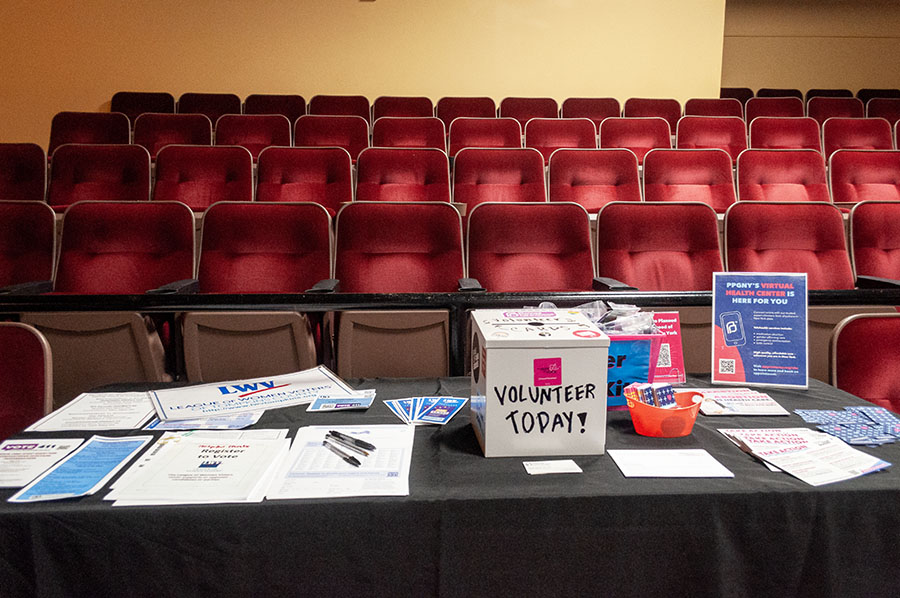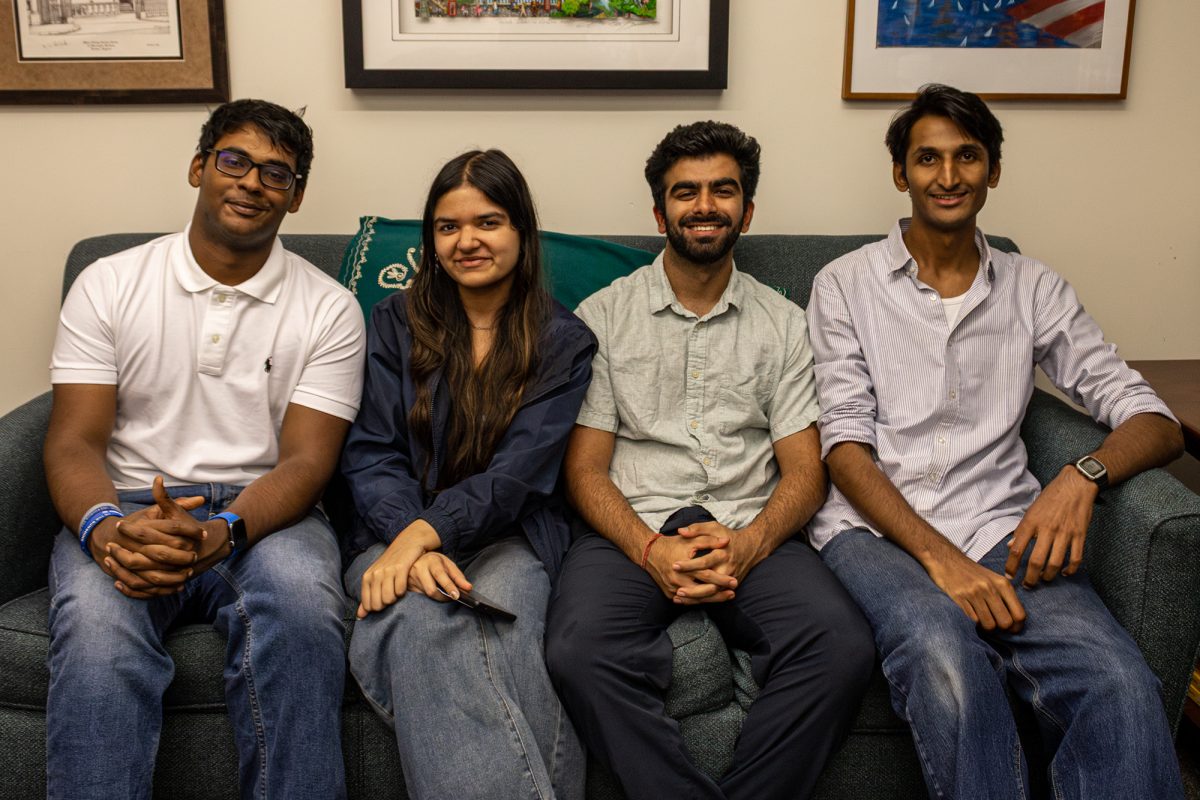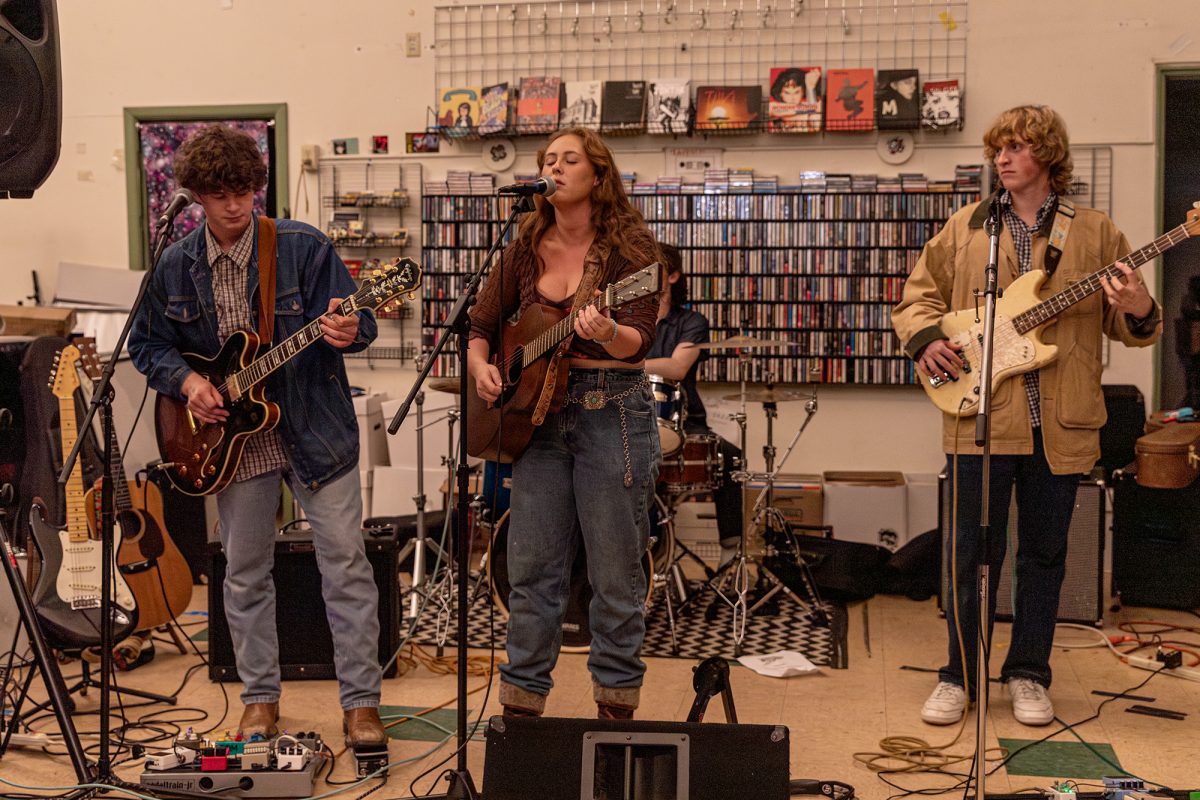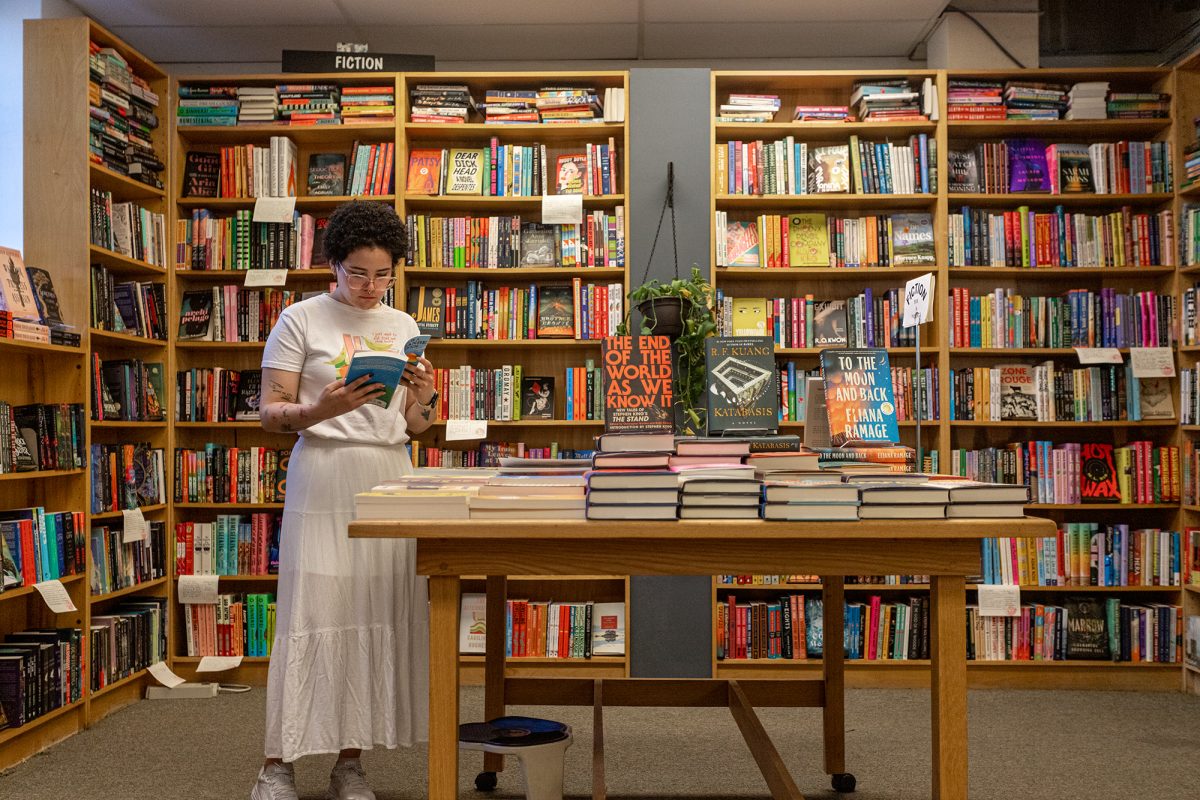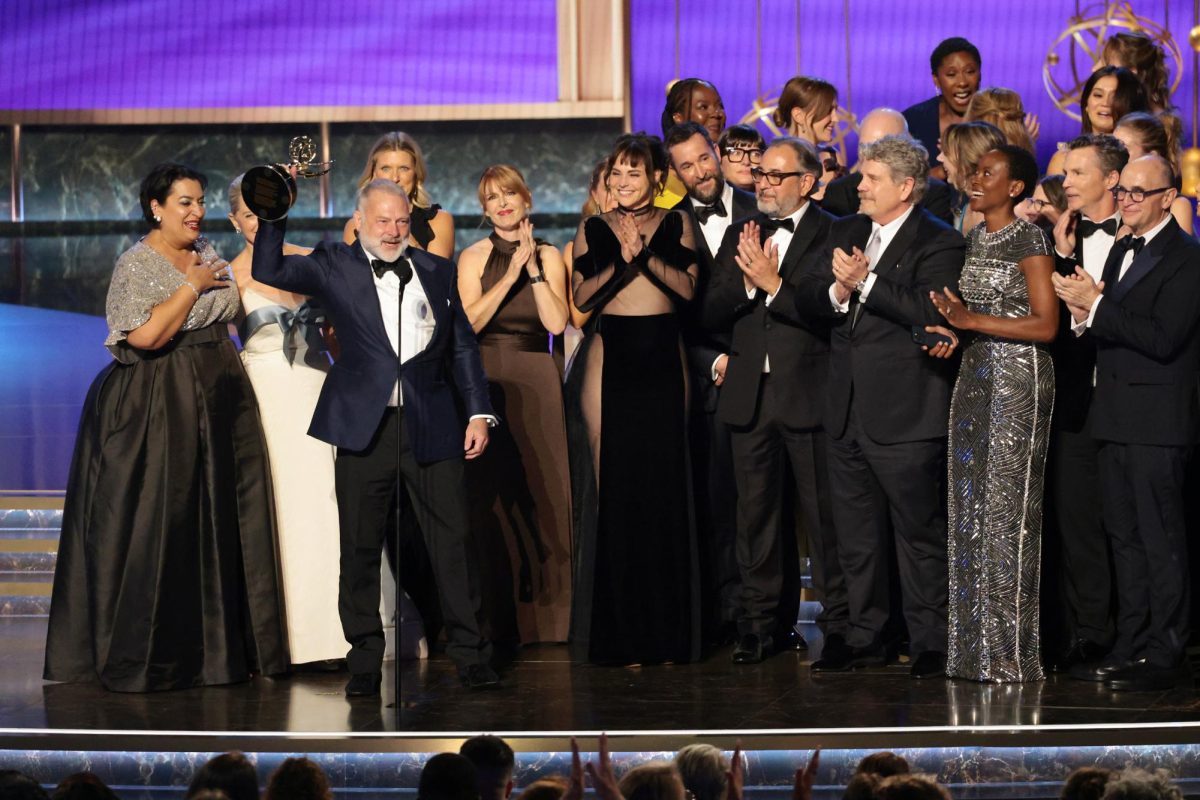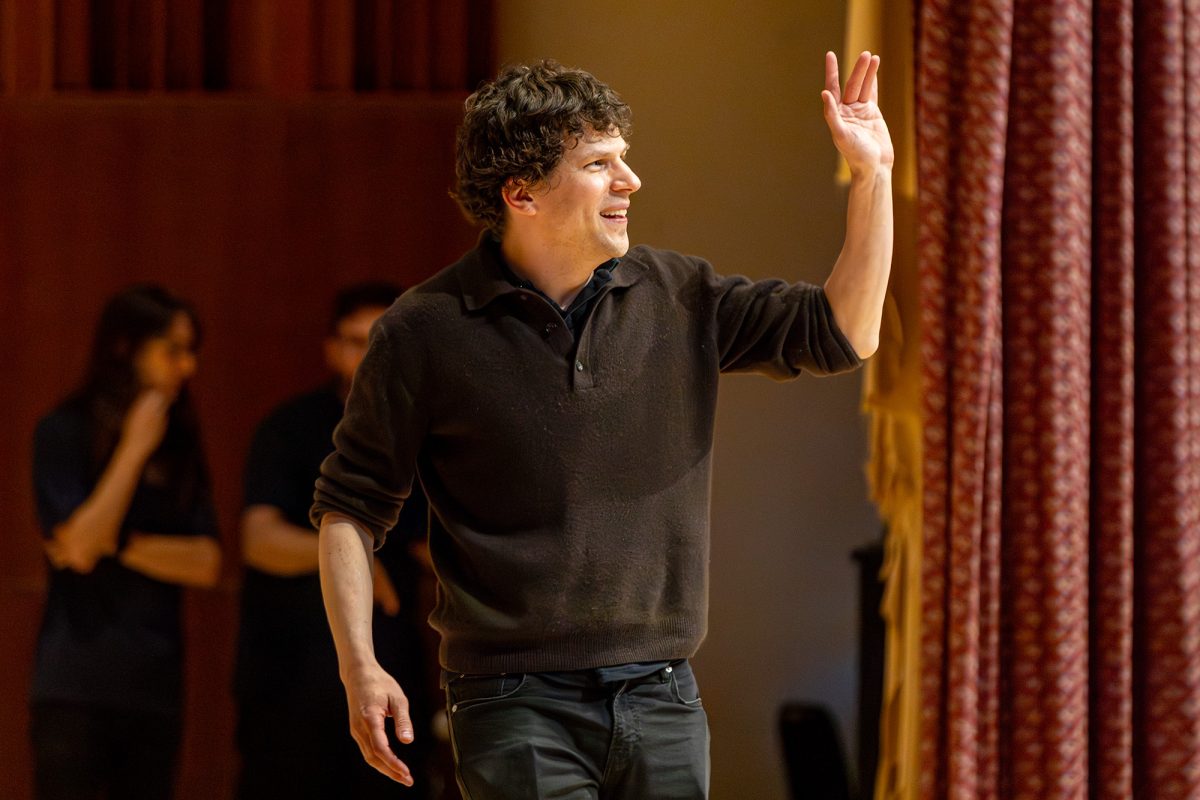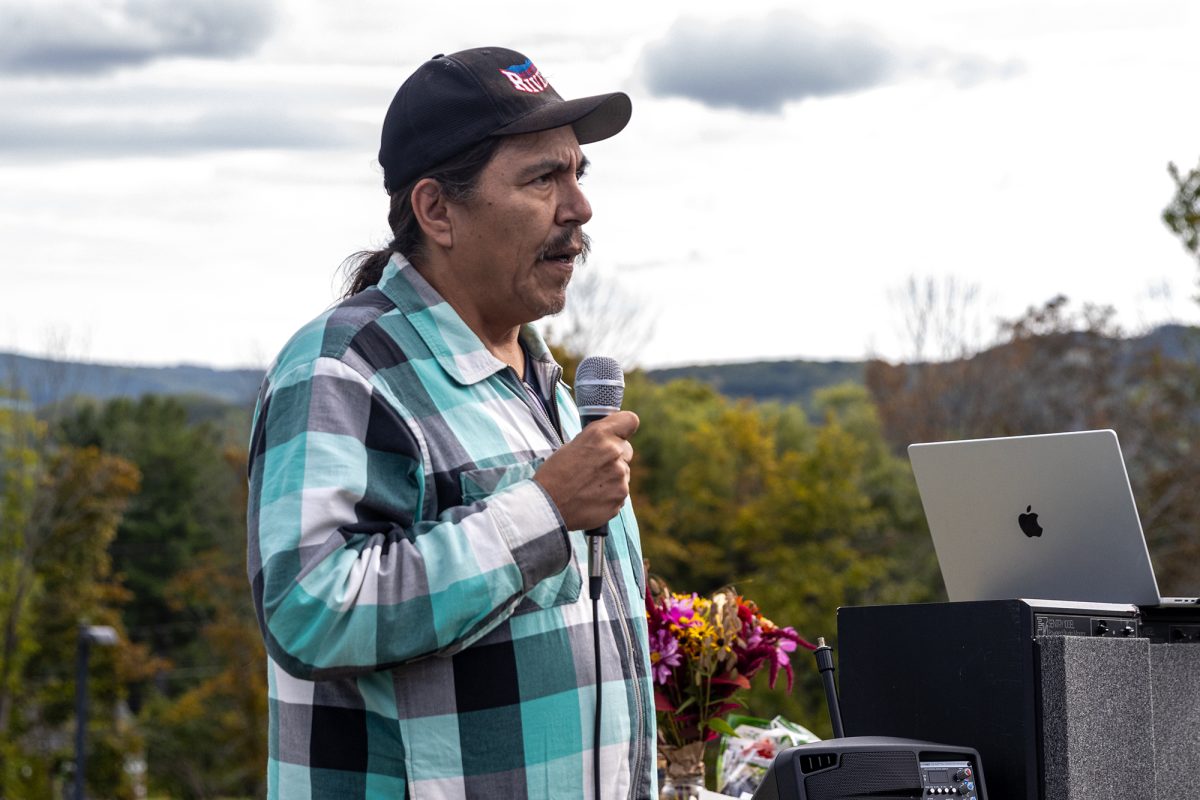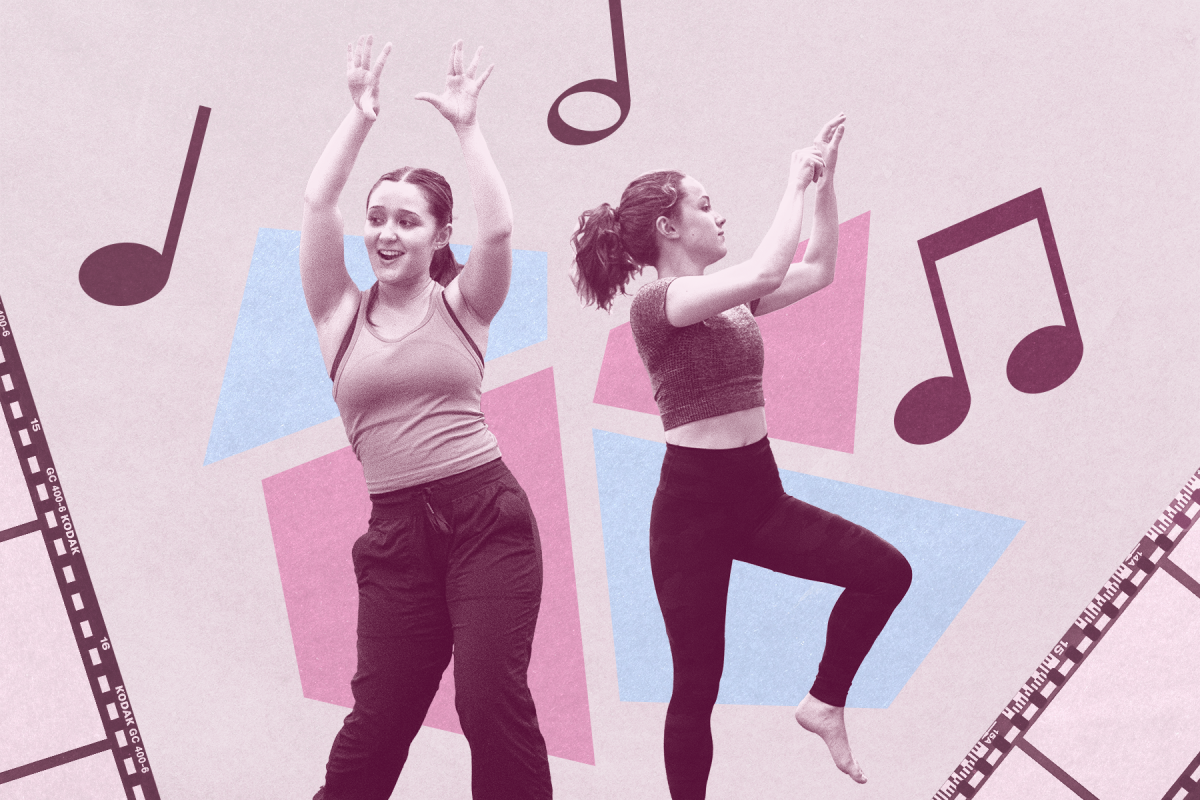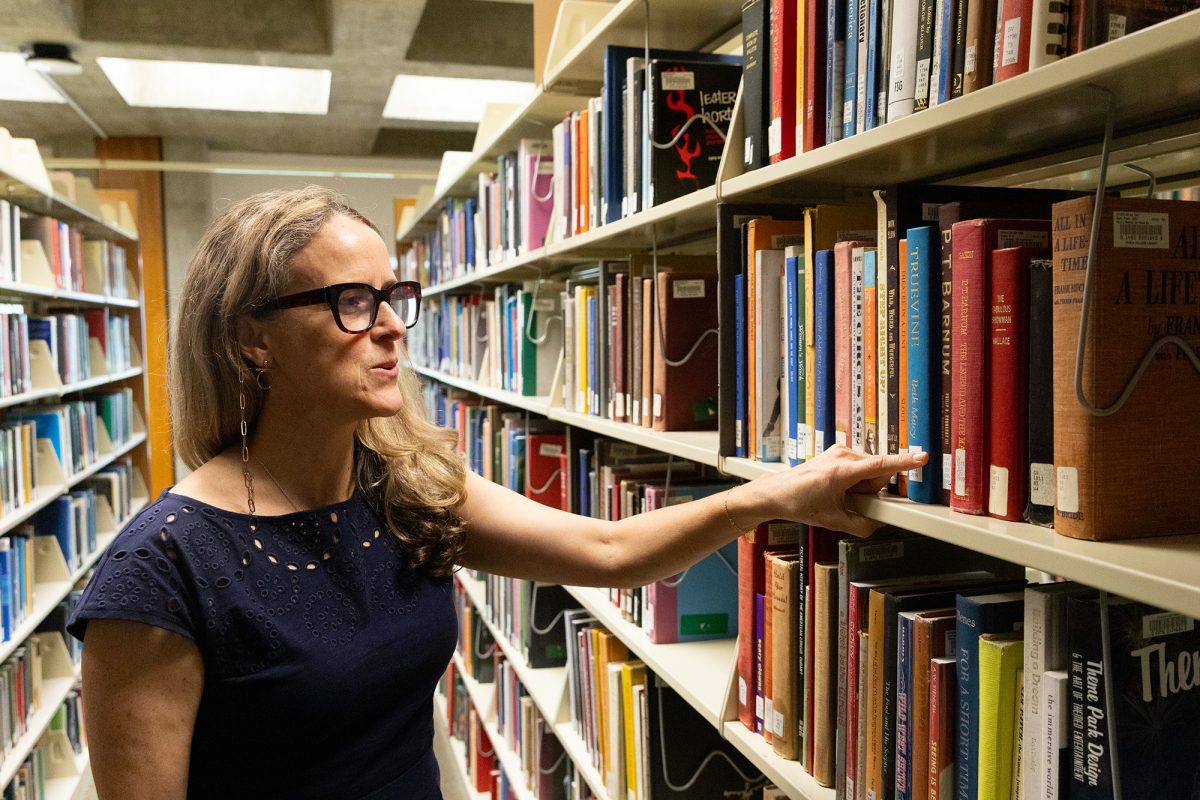The second annual Reproductive Rights Film Festival opened to an enthusiastic crowd, uniting students, activists and community members eager to delve into pressing issues surrounding reproductive justice. The festival aimed to use film as a medium for critical dialogue about reproductive justice, setting the stage for meaningful conversations on a topic that has become increasingly central in national discourse. Attendees were drawn in by the stories showcased on the screen, reflecting the complexity of reproductive rights in today’s society.
The festival lineup included five films that were shown from Sept. 19–22 at Cinemapolis. Each addressed different aspects of reproductive rights. “Power Alley,” “Preconceived,” “Plan C,” “Belly of the Beast” and “Never Rarely Sometimes Always,” explored topics ranging from access to safe abortions to forced sterilizations in women’s prisons.
End Abortion Stigma, Grandmothers for Reproductive Rights and Cinemapolis played pivotal roles in organizing the Reproductive Rights Film Festival by leveraging their unique missions to combat stigma and promote access to reproductive health care. For example, EAS uses advocacy and public education to dismantle harmful narratives around reproductive rights, GRR brings intergenerational support to the cause and Cinemapolis provides a venue for screening films that highlight reproductive justice issues.
Elayne Richard, education coordinator for GRR, said she expected the films to provoke new insights in the audience. Her activism dates back to the 1970s, including attending the National Women’s Conference in Houston and working at an abortion clinic, Richard is well-versed in the fight for reproductive justice.
“People are going to have their eyes wide open after watching all these films because they reveal things we don’t normally talk about,” Richard said. “Reproductive justice is [also] the right to have children and to raise those children in safe and sustainable communities.”
Cait Vaughan, Interim Executive Director for GRR and a community-rooted doula, said the films speak to the realities of people of reproductive age in the U.S. Vaughan moderated two talkbacks following the documentaries “Preconceived” and “Belly of the Beast.”
“All of these films convey things about the realities of people capable of pregnancy,” Vaughan said. “Whether they’re seeking abortion or whether their right to get pregnant in the future is being taken from them by the state through forced sterilization.”
Kate Donohue, executive director of Cinemapolis, played a key role in organizing the festival. Cinemapolis serves as a community hub, showcasing socially and culturally relevant content. The theater hosts events beyond standard screenings, such as a documentary on redlining and an upcoming film on the Berrigan brothers’ anti-war activism. Donohue addressed the importance of opening dialogues on reproductive justice.
“I think that very often we think we talk about everything, that there are no silences or taboos that still affect life as it is lived now,” Donohue said. “But in reality, there is still so much limited knowledge and discussion around the realities of pregnancy, childbirth and the decision to have an abortion.”
With both documentaries and narrative films shown throughout the festival, audiences were exposed to a variety of perspectives. Donohue said personal stories can shift viewpoints by revealing the realities behind statistics and policies related to reproductive rights.
“The intersection of the personal and political in [cinema] is an important way we come to a deeper understanding,” Donohue said. “It’s a very material, very emotional reality. Film can demonstrate that and help an audience feel that.”
Caroline Cox, co-founder of the festival and member of EAS, said that hosting a film festival aligned with EAS’s mission.
“Film is a complement to our own videos, public talks, rallies, plays and legislative advocacy,” Cox said. “Because society increasingly learns through visual media, we thought a film festival would be an effective way to continue our mission to end abortion stigma.”
The festival went beyond just film screenings, with each showing featuring discussions by local experts and activists, offering opportunities for deeper engagement. Richard emphasized the transformative power of these conversations, highlighting how the films helped participants confront and break down the stigma surrounding abortion.
“You watch them, and some of that really agitates you,” Richard said. “Part of our goal is to agitate people to action.”
Sue Perlgut, one of the festival’s founders and a member of EAS, echoed this sentiment. She is a local filmmaker known for her documentary on Connie Cook; she is also the founder of ClosetoHome Productions.
“What’s important, too, about a film festival is that there are people in the audience,” Perlgut said. “You’re sitting there in a community with lots of other people. After the film, you’ll talk about it, walk away wondering about it …[and] learn even more or hear information you might not have heard.”
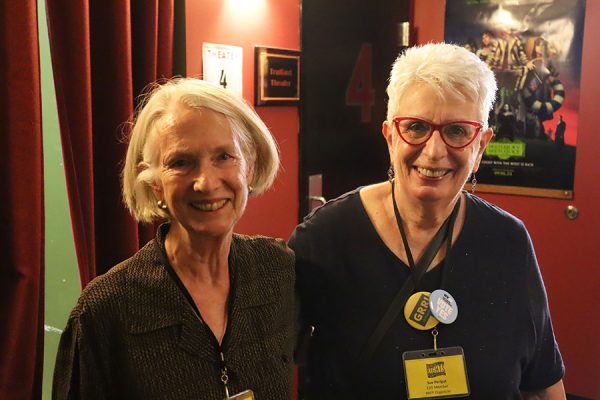
(Carter Davis)
Prior to each screening, videos of personal abortion stories were shown in place of traditional trailers. Perlgut’s story from 1965 was among them.
“There wasn’t even a question to me that if I was going to have a life,” Perlgut said. “If I was going to be the person I wanted to be, I had to have an abortion.”
Abortion was prohibited nationally until 1973, forcing Perlgut to have the procedure performed illegally when she was 21.
“I was in my first job,” Perlgut said “I was on my own. I was very lucky that I found a medical doctor, and I had a pretty safe abortion, as I found out later, listening to people talk about their terrible stories.”
In recent years, efforts to limit reproductive rights have intensified across the U.S. Legislative actions have aimed to impose stricter regulations on abortion, making it increasingly difficult for individuals to access necessary health care. These efforts often disproportionately affect marginalized communities, exacerbating existing health care inequalities.
“[A total abortion ban] could happen again,” Perlgut said. “It’s part of this whole movement to limit and stop reproductive rights. It’s going to move into stopping queer rights. … It’s starting here, but its got a much broader agenda.”
As the November General Election approaches, Mickey Belosi, executive committee member of the Central New York Chapter of the National Organization for Women, said voters need to remember to flip over their ballots. Proposal 1, formerly known as the New York Equal Rights Amendment, would ensure the protection of fundamental rights and reproductive freedoms within the state.
Currently, the New York State constitution provides protections for race and religion, however, many groups remain unprotected, such as discrimination based on the ability to become pregnant. Belosi said that Prop 1 and access to reproductive care apply to more than just women.
“Reproductive health care is a necessity with every person with reproductive organs,” Belosi said. “You never know when you’re going to need emergency medical interception and what that means to your life. … People have actually died. It’s something for everyone to be concerned about.”
Advocates are mobilizing in New York and across the country to defend these rights amid evolving political landscapes. Local efforts, like GRR, often complement broader national movements, emphasizing the need for access to reproductive health care and ongoing advocacy to address emerging barriers.
Vaughan said personal narratives are important to understanding the impact of reproductive experiences, especially in the current socio-political climate.
“One of the most important things is to hear from people who are having these experiences,” Vaughan said. “Particularly in the post-Dobbs landscape we’re living in, and also to leave with ideas about what they can do locally.”
The festival is only in its second year, already having fostered conversations about reproductive justice and marking a new beginning for community engagement and advocacy. Richard connected this sentiment to the misconceptions surrounding abortion.
“Abortions are not endings. They’re beginnings,” Richard said.



